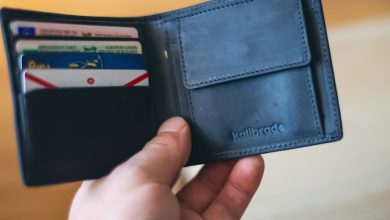How to Safely Manage Private Keys on Exchanges and Wallets

- Understanding the importance of private keys in cryptocurrency
- Best practices for storing private keys securely
- Risks associated with keeping private keys on exchanges
- How to securely transfer private keys between wallets
- Protecting your cryptocurrency assets with strong encryption
- Steps to take if you suspect your private keys have been compromised
Understanding the importance of private keys in cryptocurrency
Private keys are a crucial component of cryptocurrency security. They are essentially the passwords that allow you to access and control your digital assets. Without private keys, you would not be able to send or receive your cryptocurrencies. It is important to keep your private keys secure and confidential to prevent unauthorized access to your funds.
When you create a wallet on a cryptocurrency exchange or a hardware wallet, you are given a private key. This key is unique to you and should never be shared with anyone else. If someone gains access to your private key, they can potentially steal all of your cryptocurrency holdings. It is essential to understand the importance of safeguarding your private key to protect your investments.
Many cryptocurrency users have fallen victim to hacks and scams due to improper handling of private keys. It is crucial to store your private key in a secure location, preferably offline, to minimize the risk of theft. Additionally, you should never store your private key on your computer or any other device that is connected to the internet.
In conclusion, private keys are the key to accessing and managing your cryptocurrency holdings. Understanding the significance of private keys and taking the necessary precautions to keep them safe is essential for protecting your investments in the volatile world of cryptocurrency. Remember, with great power comes great responsibility, and safeguarding your private key is the first step in ensuring the security of your digital assets.
Best practices for storing private keys securely
When it comes to storing your private keys securely, there are several best practices that you should follow to ensure the safety of your assets. One of the most important things to keep in mind is to never store your private keys on exchanges or online wallets. Instead, consider using hardware wallets or cold storage solutions to keep your private keys offline and out of reach of hackers.
Another important practice is to regularly back up your private keys in multiple secure locations. This will help prevent the loss of your keys in case of hardware failure or other unforeseen events. It’s also a good idea to use strong passwords and encryption methods to protect your private keys from unauthorized access.
When generating new private keys, make sure to use reputable and secure methods to prevent the keys from being compromised. Avoid using public Wi-Fi networks or unsecured websites when generating new keys, as these can be vulnerable to attacks from cybercriminals.
Lastly, consider using a multi-signature scheme for added security. This involves requiring multiple private keys to authorize transactions, making it more difficult for hackers to gain access to your assets. By following these best practices, you can help ensure that your private keys remain safe and secure.
Risks associated with keeping private keys on exchanges
Keeping private keys on exchanges carries several risks that individuals should be aware of. One major concern is the potential for hacking attacks on exchanges, which could lead to unauthorized access to private keys and subsequent loss of funds. Additionally, exchanges may not have robust security measures in place to protect against internal threats or employee misconduct. In the event of an exchange going bankrupt or shutting down, there is a risk of losing access to private keys and any associated funds. Furthermore, by storing private keys on exchanges, individuals are relinquishing some control over their assets and relying on a third party to safeguard their keys. It is essential for users to weigh these risks carefully and consider alternative storage options for their private keys.
How to securely transfer private keys between wallets
To securely transfer private keys between wallets, it is essential to follow some best practices to ensure the safety of your digital assets. One method to achieve this is by using a hardware wallet, which is a physical device specifically designed for securely storing private keys offline. By transferring private keys from your online wallet to a hardware wallet, you can significantly reduce the risk of them being compromised by hackers.
Another way to securely transfer private keys between wallets is by using a encrypted USB drive. By storing your private keys on an encrypted USB drive, you can easily transfer them between wallets while keeping them secure from unauthorized access. Be sure to use a strong password to encrypt the USB drive and keep it in a safe place when not in use.
Additionally, you can consider using a secure multi-signature wallet that requires multiple private keys to authorize a transaction. By distributing the private keys among trusted parties, you can add an extra layer of security to your digital assets. This way, even if one of the private keys is compromised, the hacker would still need access to the other keys to complete a transaction.
In conclusion, it is crucial to prioritize the security of your private keys when managing them on exchanges and wallets. By following these best practices, such as using hardware wallets, encrypted USB drives, and secure multi-signature wallets, you can safeguard your digital assets from potential threats and ensure peace of mind when transferring private keys between wallets.
Protecting your cryptocurrency assets with strong encryption
Protecting your cryptocurrency assets is crucial in the digital age. One of the best ways to ensure the security of your private keys is by using strong encryption. Encryption is a method of encoding information so that only authorized parties can access it. When it comes to managing your private keys on exchanges and wallets, strong encryption is essential to prevent unauthorized access to your funds.
There are several encryption techniques that you can use to protect your private keys. One of the most common methods is using asymmetric encryption, which involves using a public key to encrypt data and a private key to decrypt it. This ensures that only the person with the private key can access the information.
Another important aspect of protecting your cryptocurrency assets with strong encryption is ensuring that you use secure and reputable wallets and exchanges. Make sure to choose platforms that have a proven track record of security and encryption. Additionally, consider using hardware wallets for an extra layer of protection.
By implementing strong encryption techniques and using secure platforms, you can safeguard your cryptocurrency assets from potential threats and unauthorized access. Remember, the security of your private keys is paramount when it comes to managing your digital assets securely.
Steps to take if you suspect your private keys have been compromised
If you suspect that your private keys have been compromised, it is crucial to take immediate action to protect your cryptocurrency assets. Here are the steps you should follow:
1. **Change Passwords**: The first thing you should do is change the passwords for all your accounts associated with the compromised private keys. This will help prevent unauthorized access to your funds.
2. **Disable 2FA**: If you have two-factor authentication (2FA) enabled on any of your accounts, consider temporarily disabling it until you can confirm that your private keys are secure. This will add an extra layer of security while you investigate the situation.
3. **Contact Support**: Reach out to the customer support team of the exchange or wallet where your private keys are stored. They may be able to provide guidance on how to proceed and help you secure your account.
4. **Monitor Transactions**: Keep a close eye on your account activity to look for any unauthorized transactions. If you notice any suspicious activity, report it to the exchange or wallet provider immediately.
5. **Transfer Funds**: If you believe that your private keys have been compromised, consider transferring your funds to a new wallet with secure private keys. This will help protect your assets from further risk.
By following these steps, you can take proactive measures to safeguard your cryptocurrency holdings in the event of a potential private key compromise. It is essential to act quickly and decisively to minimize any potential losses and secure your assets.



